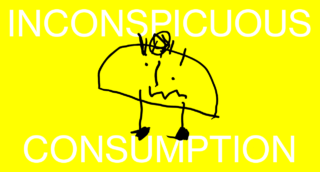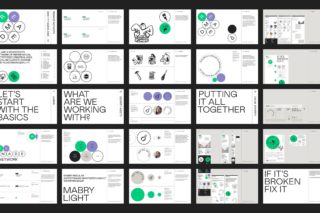Can branding shake off its association with mass consumption and help deliver an anti-consumerist message with mainstream appeal?
“This idea of ‘choice’ gained more and more societal and political value, to the point where the thought of going to a shop and being confronted with a solitary brand of baked beans was presented as an affront to your civil liberties.”
The West’s post-war drive towards an economy based on conspicuous mass consumption offered a new horizon after the extreme human cost and austerity of the years that came before. A rosy-fingered dawn of modernist convenience, designed to usher in a future of aspiration that was liberated from the toil of the past.
Over the decades that followed, ‘ordinary’ people gained more time for leisure and were presented with an increasing amount of choice in their consumption habits. This idea of ‘choice’ gained more and more societal and political value, to the point where the thought of going to a shop and being confronted with a solitary brand of baked beans was presented as an affront to your civil liberties.
A dogmatic reverence developed around the idea of commercial competition and consumer choice. They were the immovable pillars on which a thriving economy depended; the cream rising to the top, driving progress and prosperity for all. The idea of a ‘brand’ is intrinsically linked to the development of this economic narrative; manufacturing desirability and value and playing on a human need for definition and belonging among peers. It drives demand and feeds ever more resources into the metaphorical blast furnace.
And who can dispute the short term appeal? The memory of that dopamine rush of anticipation before I was presented with my latest action figure; its shining visage promising a magical month of entertainment. The initial intoxication quickly faded; the object was discarded, destined for the stomach of some unfortunate marine creature, leaving me free to once again trawl the pages of the Argos catalogue, jonesing for my next hit of injection moulded plastic.
I suppose what I’m trying to get at is that our starry-eyed innocence, and at times, ignorance to the effects of consumer culture - and the role that branding plays in stoking its flames – are no longer so easy to overlook. We live in a society that currently consumes three planets’ worth of resources to sustain its way of life. Increasingly, we’re waking up to the fact that this causes suffering, unprecedented levels of pollution, and affects the poorest communities – those who contribute least to the problem – worst.
Ask the average person: Do you want to be remembered as part of the generation that ushered in catastrophic climate change, shocking biodiversity loss, and ultimately the eventual fall of human civilisation, which future generations will be paying for long after your death?
The likely answer will be, ‘No, I do not.’ (Who would say yes?!) However, faced with such a large and deep-rooted global issue, it is easy to feel instantly overwhelmed and to switch off as a coping mechanism. As an individual you may be privileged enough to shop ethically and reduce your consumption, but for many, conspicuously ethical behaviour can still seem exclusive, an indicator of an enlightened social status. This inadvertently communicates virtues that seem exclusionary by implication.
That being said, the responsibility here cannot rest with the individual. The problem will not be solved by the independent spirit of the rugged individual inspired to take their recycling out and indulge in one less short-haul flight a year. The urgent action that is required to stem the tide can only be effective when implemented on a societal level by governments, ideally acting with the will of the people behind them and in their best interests.
“So this is the idealised view of the industry we often wrestle with over the desks at Tangent, and we’re trying to go some way to finding out if these ideas are viable – or merely an inflated idea of our own importance in the world (possible) – by putting them into practice.”
The big questions: How do we create economic alternatives to mass consumption that help put pressure on larger institutions to drive meaningful change, and how do we communicate the desirability of these alternatives to an audience raised on the language of consumerism? This is where branding may have an opportunity to help bridge the gap: by delivering meaningful messages with clarity and eventually weaning itself off its reliance on consumerism.
I realise this might feel like quite a hard pill to swallow, given the industry’s history of superficially appropriating any progressive trend that shows signs of popular appeal and market potential. At times it feels like I’m just trying to convince myself of a clean and productive future for the industry in which I work. But if undertaken with a genuine motivation, there could be a redemptive role to play for the idea of branding – or at least the skills it deploys.
So this is the idealised view of the industry we often wrestle with over the desks at Tangent, and we’re trying to go some way to finding out if these ideas are viable – or merely an inflated idea of our own importance in the world (possible) – by putting them into practice. This started with our work on the ‘Our Common Home Plan’, a fully costed plan presenting a ‘green new deal’ for Scotland, and continued with our work rebranding the Remade Network, which is an organisation that aims to build an economy based around repair rather than consumption, investing profits back into local communities.
The COVID-19 pandemic has created huge economic uncertainty; further exposed the imbalances in our society and re-emphasised our reliance on the human connection we often took for granted. There has been a fundamental shake up in the fabric of society and with that a renewed appetite for change in the mainstream. This creates an opportunity to put progressive ideas and values that benefit the health of the planet and its people at the centre of any economic recovery. We could help communicate these ideas. We could at least give it a shot.
Jack Shaw


